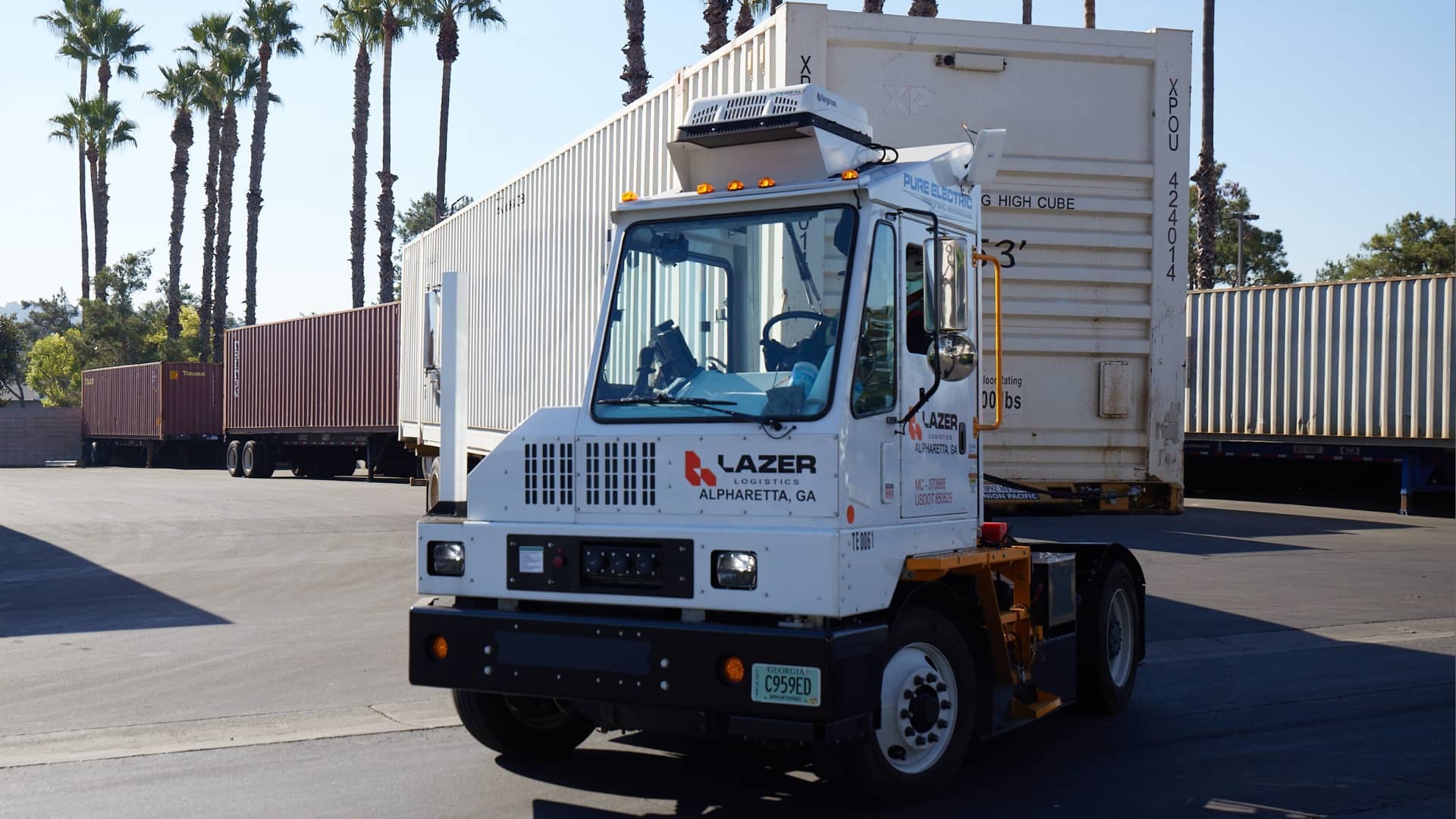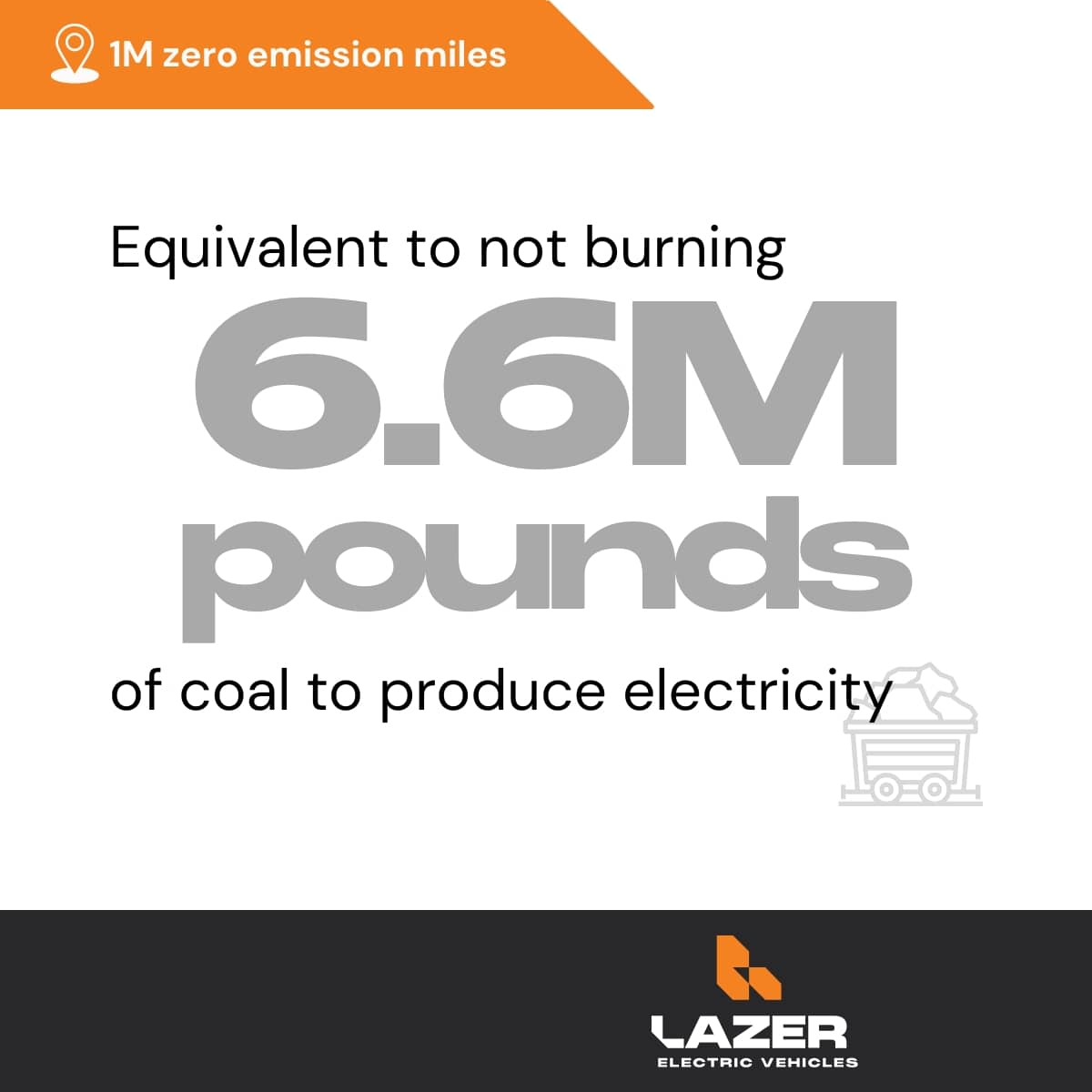
Lazer’s EV Spotter Program surpasses 1M miles, 1M moves
Almost seven years after launching its industry-leading EV Spotter Program, Lazer Logistics has surpassed 1 million zero-emission miles and 1 million zero-emission moves!
With more than 400,000 hours of EV key-on time, Lazer has contributed to significant reductions in NOx, particulate matter (PM2.5), and carbon dioxide (CO2), contributing to cleaner and healthier air for our employees and the communities in which we operate.
This milestone is equivalent to more than 7,500 homes worth of annual energy use. Here’s more perspective on the impact of our first one million zero emissions miles:





Battery-powered EV Spotters have emerged as indispensable assets in supply chain yard management due to their multifaceted advantages. Firstly, their eco-friendly design aligns with the growing emphasis on sustainability in logistics operations. By eliminating emissions and reducing reliance on fossil fuels, these EV Spotters contribute significantly to environmental conservation efforts while complying with increasingly stringent regulations.
Secondly, their battery-powered operation offers practical benefits such as cost savings and operational efficiency. By eliminating fuel costs and reducing maintenance requirements associated with traditional diesel-powered vehicles, EV Spotters offer a more economical solution in the long run. Moreover, their quiet operation minimizes noise pollution, making them suitable for deployment in urban areas and noise-sensitive environments.
EV Spotters enhance yard management by optimizing space utilization and improving maneuverability. Their compact design and agile movement enable them to navigate congested yards with ease, reducing the risk of accidents and enhancing overall safety. Additionally, their ability to operate for extended periods on a single charge ensures uninterrupted workflow, thereby maximizing productivity and throughput.
Battery-powered EV Spotters represent a paradigm shift in supply chain yard management, offering a sustainable, cost-effective, and efficient solution to the complex challenges faced in modern logistics operations. Embracing this innovative technology is not only essential for meeting environmental goals but also for achieving operational excellence in the increasingly competitive global marketplace.
